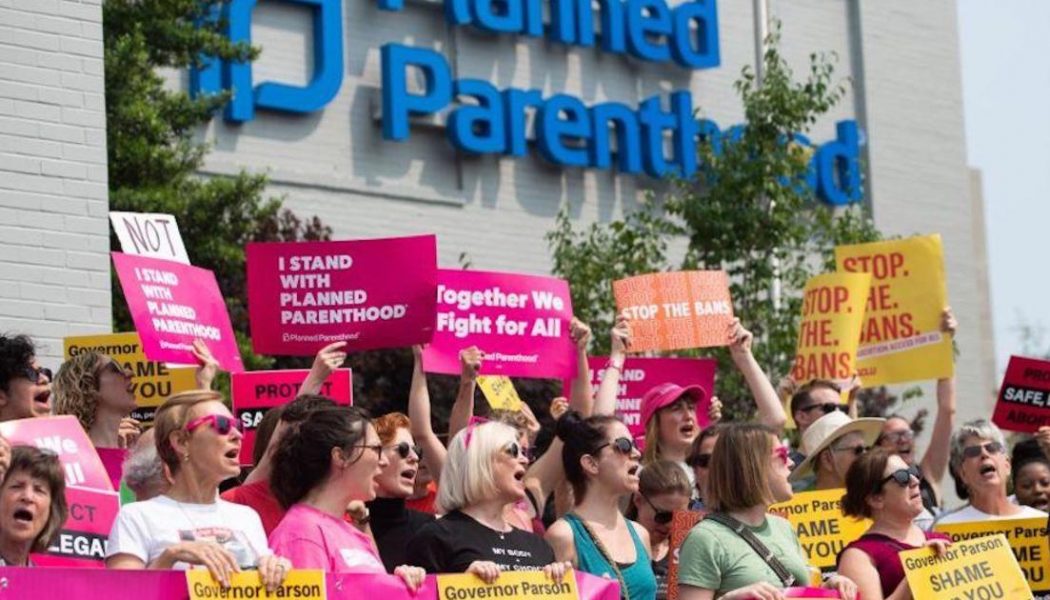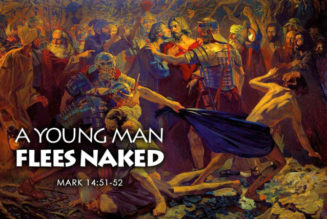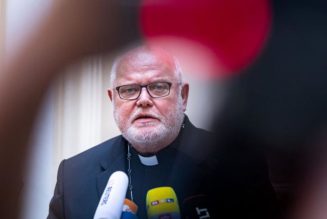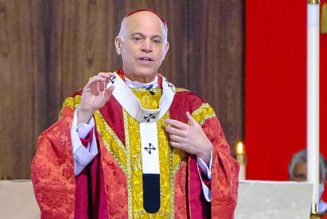
As abortion-supporters brace for another year of restrictions and court battles, Planned Parenthood is throwing its weight into the 2020 elections.
This week, Planned Parenthood launched the biggest electoral effort in its history: a $45 million spend to support presidential, congressional and state-level candidates in the 2020 elections who support abortion rights. Jenny Lawson, the Planned Parenthood Votes Executive Director, said, “The stakes have never been higher.”
“[The Trump Administration} has managed to undo so much over the last three years,” Lawson said in an exclusive interview with CBS News. “The fact that this summer the Supreme Court might gut Roe v. Wade is an indicator of their intention and they’ve never been so bold.”
Planned Parenthood’s electoral efforts — which the group has dubbed “We Decide 2020” — hope to reach five million voters in nine battleground states: Arizona, Colorado, Florida, Michigan, Minnesota, New Hampshire, North Carolina, Pennsylvania and Wisconsin. A spokesperson for the organization said this week was the “official start” to the strategy.
The investment intends to fund large-scale grassroots programs and canvassing, digital, television, and radio and mail programs, according to Planned Parenthood. Just this week, the organization and its affiliated political organizations have hosted over 60 events, according to a Planned Parenthood spokesperson.
State lawmakers introduced over 300 anti-abortion measures last year, a record-high number, according to the Guttmacher Institute, a pro-abortion rights research organization. Twelve states passed bans on the procedure, though all have been blocked by federal judges. Many of those other restrictions have gone into effect, however, including mandatory waiting periods and other measures designed to dissuade women from choosing an abortion.
This year is expected to be no different. South Carolina is considering its own six-week ban on abortion and lawmakers in Tennessee are pushing to restrict the procedure entirely. A bill in Ohio overhauls the state’s penal code to call for some abortion patients to receive the death penalty.
In March, the Supreme Court will hear its first abortion case since the appointments of Justices Neil Gorsuch and Brett Kavanaugh flipped the Supreme Court conservative. The case centers on a 2014 Louisiana law that requires abortion-providing doctors to have admitting privileges at a nearby hospital. If the law is upheld, Louisiana could become the first state not to have legal abortion access since the procedure was legalized in 1973.
Earlier this month, 39 senators and 168 House members submitted an amicus brief in that case, supporting the abortion restriction and suggesting that Roe v. Wade might be “unworkable.”
Lawson said that Planned Parenthood Votes is comfortable with “every major democratic candidate.”
“The Democratic candidates collectively have the boldest reproductive rights policies we’ve ever seen,” Lawson said. “Every major candidate in the 2020 elections, except for Donald Trump, has spoken out against dangerous abortion bans and many of them have actually introduced real plans to protect the reproductive rights in this country.”
Structurally, financially and operationally, Planned Parenthood Votes is separate from the organization clinic operations.
Abortion-rights opponents are also expected to increase their advocacy efforts ahead of the 2020 election. In a press release issued last year, the Susan B. Anthony List, an anti-abortion rights activist group, said it plans to spend $41 million with a goal to “aggressively challenge, erode, and finally, overturn Roe v. Wade.” The organization did not return an email requesting comment.
Last year, Planned Parenthood’s acting president told CBS News that recent laws attempting to restrict abortion have forced the organization to be both a health care provider and an advocacy group.
“We are primarily a health care provider,” said Alexis McGill Johnson, president and chief executive officer of Planned Parenthood Federation of America and the Planned Parenthood Action Fund. “We provide access to sexual and reproductive health, in some cases primary care. We’re not political by nature but we’ve been politicized, and that fight has actually been our focus — to ensure that our health centers stay open.”









